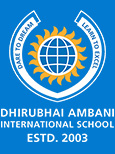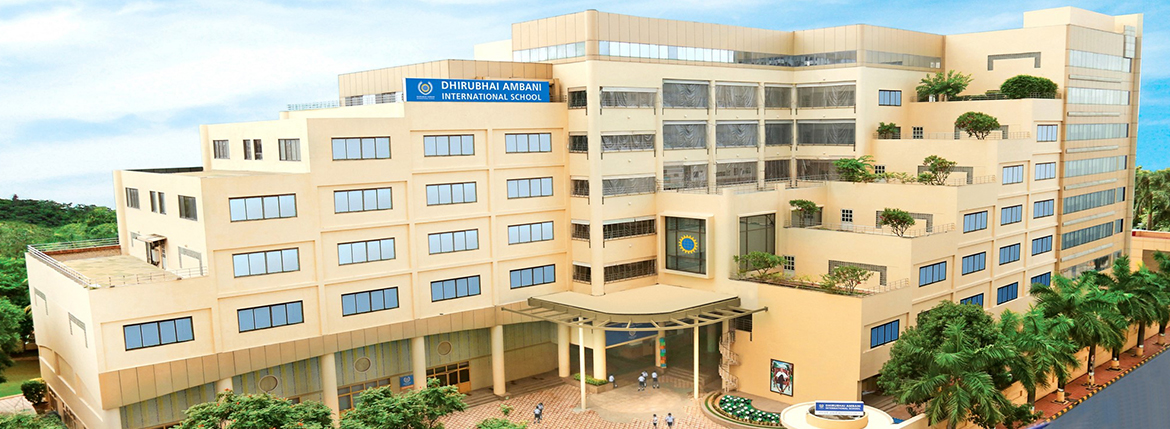THIMUN SINGAPORE - 2020
THIMUN Singapore 2020, the first THIMUN virtual conference took place from the 16th to the 20th of November, bringing together delegates from around the globe to debate and discuss important issues in the world around us. The delegates were divided into 9 committees; ECOSOC, Economic Committee, Environment Committee, Human Rights Committee, Legal and Finance Committee, Political Committee, Sustainable Development Committee, Youth and Health Committee and the Security Council. Each committee debated two agendas over the course of 5 days and passed appropriate resolutions. My allocation for THIMUN 2020 was the United Kingdom in the Environment Committee. The sessions took place on zoom, while the THIMUN webapp allowed for delegates to communicate with each other, view resolutions and the schedule.
Day 1- (16th November)
Each committee had their own prep meetings, where the delegates were introduced to their student officers and briefed about the coming 5 days including code of conduct, dress code requirements, how to write resolutions, the process of lobbying on an online platform and the functioning of the web app. This was followed by the opening ceremony.
Day 2 - (17th November)
This day saw formation of 3 different breakout rooms for lobbying, each delegation allocated to one by the chairs based on a country’s stance on the first agenda. At the end of the session, 3 resolutions were ready for the first agenda in each committee.
Day 3 - (18th November)
The approved resolutions written the previous day were debated on.
Day 4 - (19th November):
This was similar to the second day, but the lobbying was for the second agenda of each committee. After the lobbying session, there was a panel discussion to which all delegates were invited.
Day 5 - (20th November):
The last 3 resolutions on the second agenda were debated upon, followed by the closing ceremony to formally end the conference.
Through the course of the conference there were guest speakers in a few committees, however not in my committee i.e. the environment committee.
The Environment Committee saw 4 days of fruitful debate on the topics of ocean exploitation and climate as a global common good. The committee passed 4 of the 6 approved resolutions.
This included one from the delegation of the United Kingdom. The process of lobbying in the environment committee was successful as well with constructive cooperation between various delegations to propose the most feasible courses of action.
The international conference was very well organised, with zoom links accessible, no disruptions during committee and voting procedure conducted in a fool proof manner. The student officers were professional but helpful and the debate was well-researched and engaging. The Munity East articles were interesting reads while the panel discussion provided us with much needed perspective and ideas about the United Nations. However, while there is no other alternative, working on an online platform also meant that it was easier to zone out and not participate in debate, something I believed the delegates of the environment committee guarded against with active participation on all days. Conclusively, both the logistics and the debate itself at THMIUN was well managed and productive respectively, making it a memorable experience.
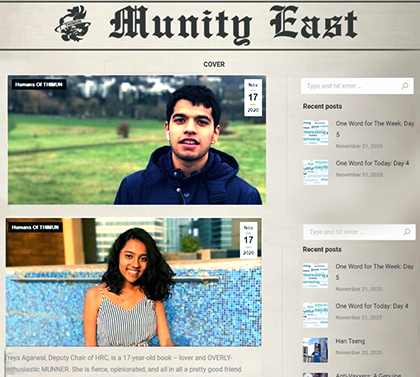
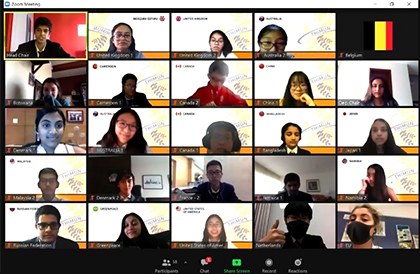
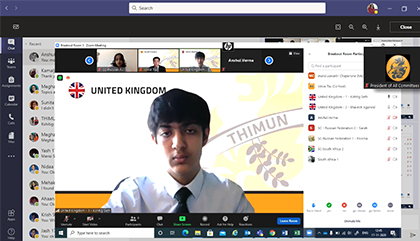
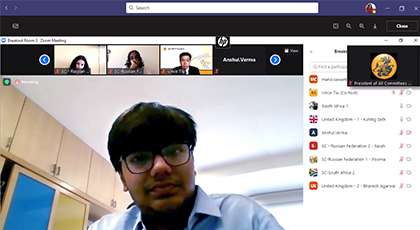
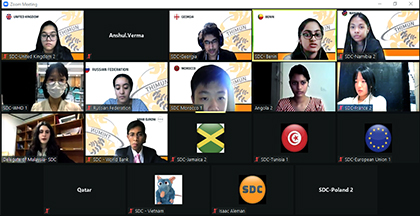
On a more personal level, this conference most definitely allowed to me to strengthen my research and communication skills. At the beginning of the conference I was a little hesitant to talk and raise points of discussion, but I think the nature of a MUN is such that when you talk once, your fear melts away very quickly after that. That’s what happened to me and I would like to believe I made most of the experience. More importantly THIMUN impacted me the most by putting the world and everything around me into perspective. My research not only strengthened my skills but also allowed me to explore the problems related to climate change. I understood that mitigating climate change is so much more complex than I anticipated and involves politics, economics and sociology in conjunction with awareness movements. I believe this can be extrapolated to most problems around the world, everything more complicated than we make them out to be, however each of them solvable with cooperation. This awareness is my most treasured learning. I am extremely grateful to have been given this opportunity and it was an educational, engaging and enriching experience.
Anagha Srinivasan - 10C
